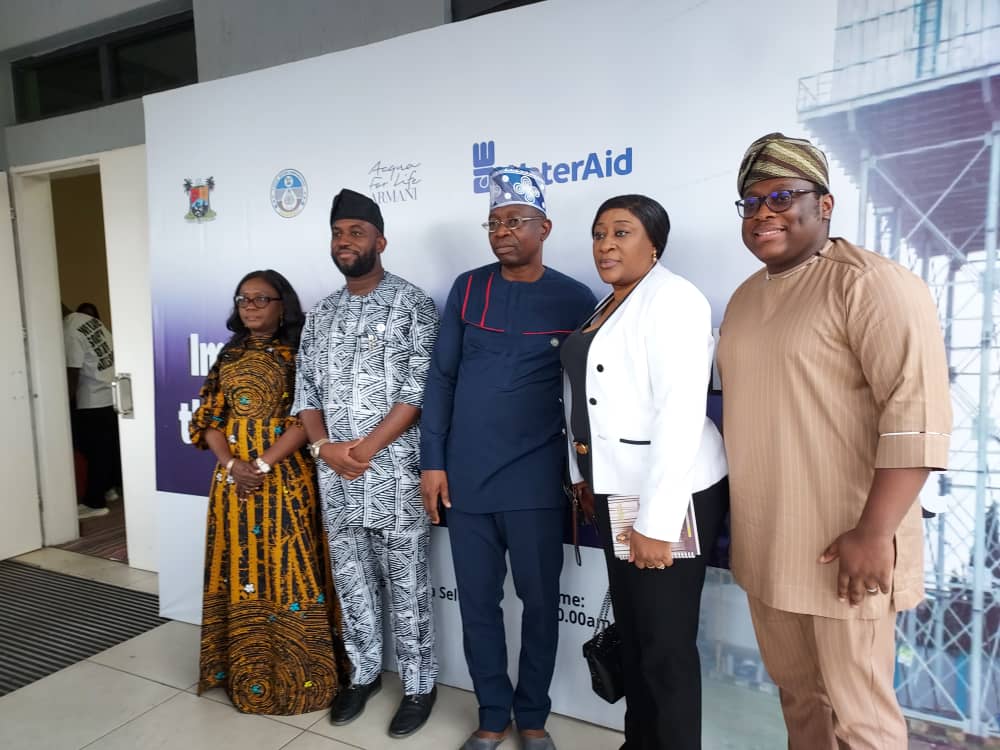…Targets Innovation, Wider Access
Lagos State is taking steps to solve one of its most persistent challenges, reliable access to clean water, by bringing the private sector into the heart of water service delivery for the first time.
At a two-day advocacy and sensitisation workshop themed “Improving Water Supply in Lagos Through Private Sector Investment” held from August 14–15, the Lagos Water Corporation (LWC), in partnership with WaterAid Nigeria and Armani, unveiled plans to concession about 10 per cent of its water infrastructure under a Public-Private Partnership (PPP) pilot programme.
“This is going to be the first time we are concessioning infrastructure assets in Lagos,” said Dr. Shem Ayegba from the Office of Public-Private Partnerships in Lagos.
His presentation focused on the importance of public-private partnerships for infrastructure development, with a focus on water utilities.
According to Ayegba, who represented the Special Advisor to the Lagos Governor on Public-Private Partnerships, “It’s just around 10 per cent of the water infrastructure only that is for this pilot phase.
Pilot projects help you learn the ropes before scaling up, so we can mitigate risks early.”Drawing parallels with Singapore’s transformation from dependence on imported water to global self-sufficiency, Dr Ayegba stressed the role of innovation.
“With the private sector’s efficiency and creativity, we can introduce solutions like desalination, rainwater harvesting, and near-100 per cent recycling — things that have worked elsewhere and can work here.”
For LWC’s Managing Director, Mr. Mukhtar Tijani, the most important part of the workshop was winning community trust. “They are the ultimate beneficiaries,” he said. “We want their buy-in, their understanding, and their support for the success of this programme.”
Lagos currently operates two major treatment plants in Iju and Adiyan, and 48 micro and mini plants designed to serve surrounding communities.
Many of the smaller plants run below capacity. Tijani believes private sector investment can boost production and extend supply to underserved areas.
He also addressed concerns about equity: “There’s no segregation in supply. In fact, lower-income areas often have better access because of where our plants are located. But without private sector support, capacity remains our biggest hurdle.”
The Lagos State House of Assembly is signalling readiness to make legal adjustments for the PPP to thrive. Representing Lagos State Assembly
Speaker, Mudashiru Obasa, and the Chairman, Lagos State Assembly House Committee on Environment, Rashid Shabi, a lawmaker from Lagos State Assembly, Ogundipe Steven Olukayode pledged swift legislative support.
Ogundipe, who is the Chairman of the House Committee on Information, Strategy and Security, said, “If there’s any gap in the current law that will hinder the PPP, we’ll address it immediately through public hearings and necessary amendments. Lagos prides itself on being proactive.”
Civil society groups have raised alarms, framing the PPP plan as the privatisation of a vital public service. But WaterAid Nigeria’s Lagos head, Adebayo Alao, insists this is a misunderstanding.
“We are not privatising Lagos Water Corporation,” he explained. “We are saying the private sector has resources that can improve service delivery.
Less than 10 per cent of Lagosians currently get water from LWC — that is unacceptable. Our target is to move that to 30–40 per cent in five years, and 70 per cent in a decade.”
Also, acknowledged that laws governing the water sector may require review to “meet current realities” and reassure investors of returns, while keeping public interest paramount. “It’s about improving service, not surrendering control,” he emphasised.
The pilot concession, if successful, will serve as a template for scaling private participation across Lagos’s water network.
Stakeholders see it as a win-win: the government gains efficiency and innovation without losing oversight, the private sector finds viable investment opportunities, and millions of residents stand to enjoy a more reliable water supply.
“Water is life,” Tijani reminded participants. “If we can join hands with capable partners to ensure every Lagosian has it in their home, then we’ve done our job.”















